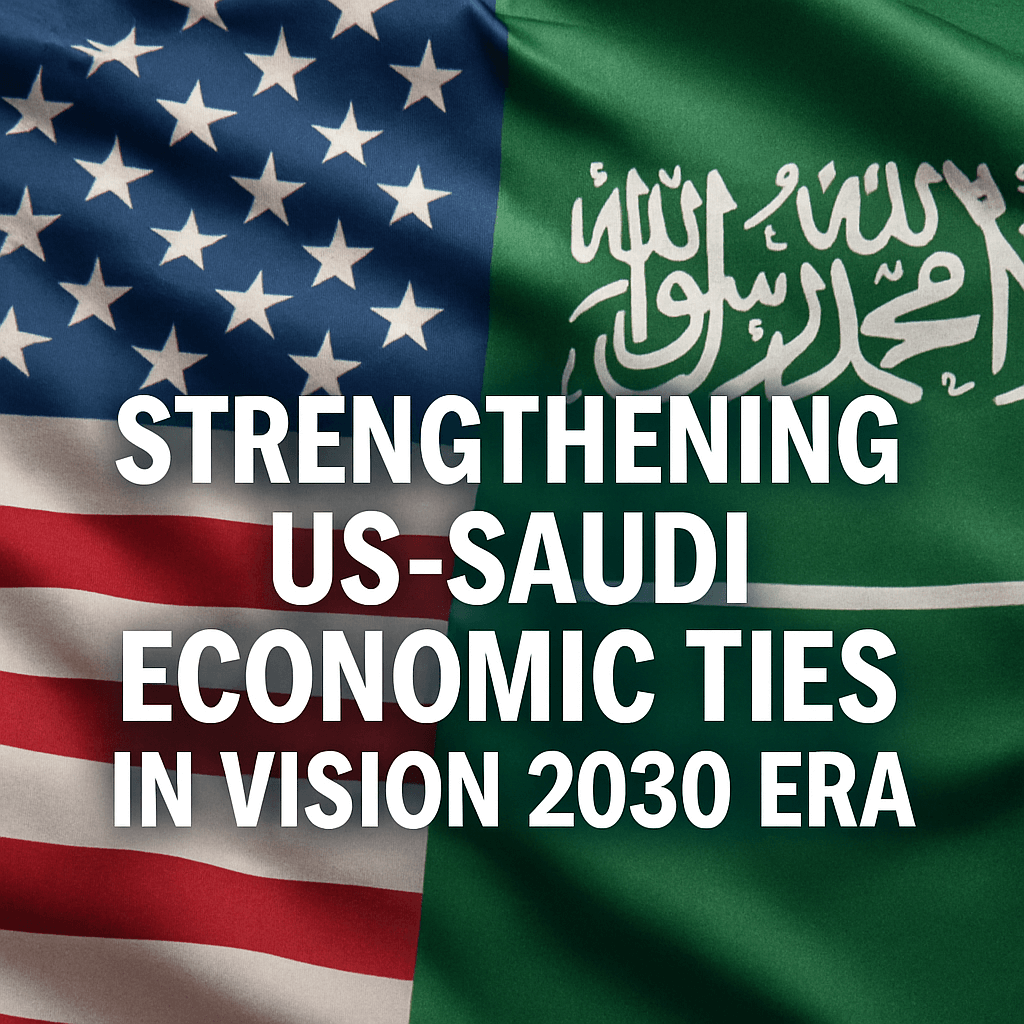Strengthening US-Saudi Economic Ties in Vision 2030 Era

US President Donald Trump’s four-day visit to Saudi Arabia, the United Arab Emirates and Qatar in May 2024 marked a watershed moment in US–Gulf relations, underscoring the Kingdom’s rapid economic diversification under Vision 2030. Accompanied by senior cabinet members and more than 300 CEOs, Trump’s tour yielded over $600 billion in announced deals spanning artificial intelligence, defense, infrastructure, tourism, mining and energy.
Vision 2030 and Mega-Projects Gain Momentum
Launched in 2016, Saudi Arabia’s Vision 2030 framework aims to reduce the Kingdom’s dependence on oil by expanding sectors such as tourism, entertainment and technology. The past eight years have seen an acceleration in giga-scale developments and regulatory reforms that encourage foreign direct investment (FDI) and public–private partnerships.
Diriyah Development Project
At the heart of the tour was the Diriyah Project, managed by Diriyah Company with an estimated budget of $64 billion. The 14 million square-metre development on the outskirts of Riyadh is converting the UNESCO World Heritage site of At-Turaif into a sustainable cultural and tourism hub scheduled for completion in 2030.
- LEED Platinum standard for all new buildings
- On-site solar photovoltaic system supplying up to 50% of annual electricity demand
- Zero-waste construction protocols and smart-city sensors for energy management
- Integrated transport system including 20 km of autonomous electric shuttles
“We’ve opened substantial assets, and each year until the 2030 expo will see new cultural, retail and hospitality openings,” said Jerry Inzerillo, CEO of Diriyah Company. “Our capital expenditure is on schedule and within budget, backed by leading Saudi conglomerates.”
Regional Headquarters (RHQ) Programme
Riyadh has quickly become the Gulf’s G20 hub: nearly 600 companies now have their regional headquarters in the capital, up from just 100 in 2016. Tech giants—including Google, Amazon, Apple and Microsoft—have committed to establishing cloud data centers. Financial firms like Morgan Stanley, BlackRock, Deloitte and PwC have also relocated regional operations, enticed by incentives such as 100% foreign ownership and accelerated licensing.
Technology and AI Partnerships
Beyond infrastructure, technology formed a core pillar of the visit. At the US–Saudi Strategic Forum on 13 May, bilateral agreements included:
- A $2 billion investment by Microsoft to expand Azure cloud regions in Riyadh, with low-latency compute instances optimized for Arabic NLP and AI training workloads.
- Joint research initiative between Saudi Data and AI Authority (SDAIA) and OpenAI, focusing on a Closed Loop AI Data Ecosystem to secure sensitive data flows and comply with global privacy standards.
- Collaborations on cybersecurity, including real-time threat intelligence sharing and co-development of defense-grade encryption modules.
Expert Opinion: Dr. Lina Alghamdi of King Abdullah University of Science and Technology notes, “Saudi’s investment in AI infrastructure and regulatory sandboxes positions it among the top 10 global AI hubs by 2028.”
Economic Diversification and FDI Trends
According to the Saudi Ministry of Investment, FDI inflows rose 15% year-on-year in Q1 2024, reaching $11.5 billion. International credit agencies have responded positively: in April 2024, Fitch Ratings upgraded Saudi Arabia to A+ with a stable outlook, citing improved fiscal buffers and diversified revenue streams.
- Tourism receipts up 25% YoY, driven by relaxed visa policies and new entertainment zones
- Non-oil exports increased by 12%, led by petrochemicals, minerals and food processing
- Private sector contribution to GDP now exceeds 60%, compared with 40% in 2016
Impact on Regional Geopolitics and Security
Trump’s tour also carried significant diplomatic weight. The presence of the US Secretary of Defense, Secretary of State, Secretary of the Treasury and Secretary of Energy signaled deepening strategic alignment on energy security, counterterrorism and regional stability.
“It was an extraordinary 26 hours. Saudi Arabia is playing a very big strategic role in terms of diplomacy,” Inzerillo remarked, highlighting the Kingdom’s outreach to Europe, with state visits from the UK, France and Germany earlier in 2024.
Outlook and Next Steps
With COP29 on the horizon and the 2030 World Expo approaching, Saudi Arabia’s capital will continue to serve as a focal point for global investment and governance forums. Anticipated developments include:
- Launch of the NEOM Utility Tunnel Phase 2, incorporating carbon-capture pipelines and hydrogen distribution networks
- Introduction of a green sukuk framework to finance renewable energy projects
- Expansion of public transit in Riyadh with 120 km of new metro lines by end-2025
As the Kingdom transitions from oil-based revenue to a diversified economy, its partnerships with the US and Europe—bolstered by high-profile visits like Trump’s—are likely to accelerate the region’s digital transformation and sustainable development trajectory.